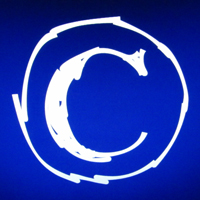- photo contests ▼
- photoshop contests ▼
- Tutorials ▼
- Social ▼Contact options
- Stats ▼Results and stats
- More ▼
- Help ▼Help and rules
- Login
Similar Blender Tutorials:
Radiosity Rendering - Blender Tutorial

Let’s assume you have a scene ready, and that you want to render it with the Radiosity Rendering. The first thing to grasp when doing Radiosity is that no Lamps are necessary, but some meshes with an Emit material property greater than zero are required, since these will be the light sources. Emit is found on the Shaders panel in the bottom right (Material sub-context). Typically, a value of 0.5 or less gives a soft radiance.
submitted: 5 years and 3943 days ago
Game Engine - Motion - Blender Tutorial
Rendering Layers - Blender Tutorial

Renderlayers are used to separate your composite image into layers. Use RenderLayers for a specific reason - such as creating depth of field, relighting isolated elements within the image via a normal pass, adding a colorcast to specific portions of the image, etc. The keyword here is isolation. Renderlayers allow you to dissect, effect and or correct individual elements or groups within your composition before outputting your final render. This saves you from endlessly re-rendering your scene just to find out whether a correction is going to work or not.
submitted: 5 years and 3940 days ago
The Render Options - Blender Tutorial

We know that around the world, our users have PC's of widely varying power. Rendering is the process in CG that can chew up CPU and disk space like no tomorrow. Especially in corporate environments, it is easy to fill up terabyte servers by uploading ten hour-long DV tapes and doing some editing. So, there are lots of options try to shoehorn a big job into a small PC by providing you with multiple sets of options that chunk up the work as best we can, while still preserving image integrity.
This page discusses the main options found on the Render panel, and subsequent pages give you more.
submitted: 5 years and 3940 days ago







